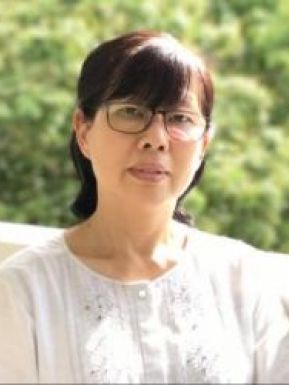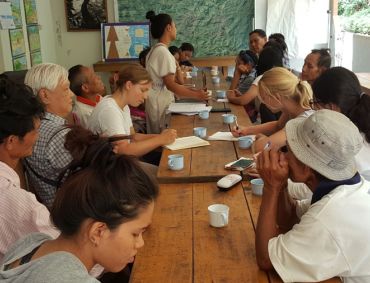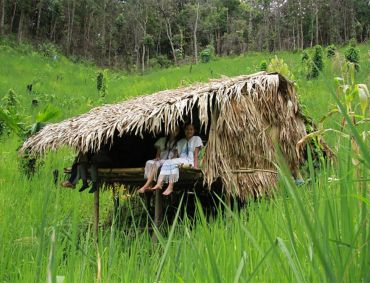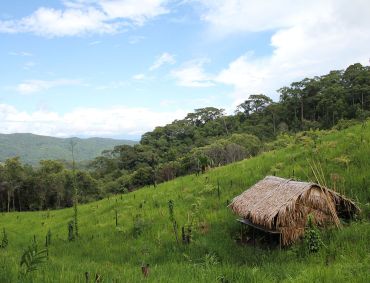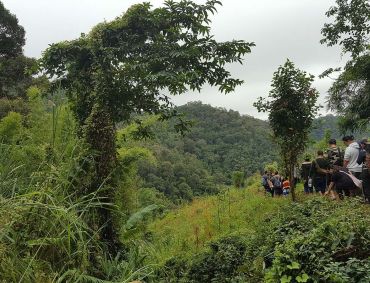Malee Sitthikriengkrai
I started my career path as a nurse hoping to work in a rural community or refugee camp. Unable to accomplish this dream I instead furthered my studies by enrolling for a postgraduate Social Science course in Medicine and Health at Mahidol University where I received my masters and my Ph.D. For my masters studies I worked at the Institute for Traditional Thai Medicine, Ministry of Public Health (MOPH). My MA. thesis studied Folk Healer of the Phu Tai, an ethnic group in Renu Nakhon district, Nakhon Phanom province, Thailand. My next research was in late 1990s during which time there was an AIDS epidemic in Northern Thailand. I carried out research on the role of Lanna Folk Healers in healing and Promoting patient’s living with AIDS (PLWA). This research was participatory action research. I discovered that folk healers who did have a contribution to make to the health care of AIDS patients could not treat them as they were not given a medical license to do so. Hence AIDS patients and PLWA could not seek them out as an alternative form of medical practitioners. In this research, I studied the existing power relation between biomedical practitioners and traditional medicine in the health care system. In 2000, I started my Ph.D. My thesis focused on a Karen upland community which was suffering from environmental lead contamination and was pursuing environmental justice in the courts. In this thesis I applied Foucault’s power/knowledge thesis to understand Karen villagers health problems. I showed that medical doctor used their knowledge to suppress the illness experiences of the Karen villagers thus perpetuating their sufferings. My theoretical focus in health studies has been on the power of medical institutions and knowledge and how this power affects to local peoples, and how in turn people contested it.
After I completed my Ph.D., in 2006 I was appointed lecturer at Social Sciences Faculty of Chiang Mai University. Here I teach in two MA programs, Health Social Sciences and Ethnicity and Development. Since 2009, I extended my research interests to refugee communities living along the Thai-Myanmar border. I am also on the Integration Steering Committee for the Restoration of Karen Livelihood (Ministry of Culture). In 2011, I started my research project on Karen participation in the Special Cultural Zone designated by cabinet resolution 3 August in 2010. In this project I train Karen in writing their history, traditional poems, and food practices and try to synthesize their findings. A part of this research was presented and published in Mobility and Heritage in Northern Thailand and Laos :Past and Present, 2013 (Proceeding of the ChiangMai Conference ed: Olivier Evrard, Dominique Guillanud, Chayan Vaddhanaphuti (eds.), ChiangMai: CESD, p127-140.). Two years later, in 2015, I and Chayan Vaddhanaphuti published an article on “Long Life of People Living with HIV/AIDS and the Practice of Medical Power” which appeared in Socio-Ecological Dimensions of Infectious Diseases in Southeast Asia, Singapore eds: Serge Morand, Jean-Peirre Dujardin, Regine Lefait-Robin, Chamnarn Apiwathasord.
A more recent paper is “Detoxification: A Practice to Reform Medical Knowledge” in Communities of Potential: Social Assemblages in Thailand and Beyond, Shigeharu Tanabe (ed.) ChiangMai: Silkworm Books. This paper applies the concept of ‘experience movements’ to understanding how illness experiences can reform medical knowledge. In 2017, I and Nathan Porath rewrote some part of my Ph.D.’s thesis in a paper titled ‘Lead-Polluted Water Changed our Lives’: A Thai-Karen village’s Quest for Environmental Justice. It was published in South East Asia Research Journal, Vol 25(2), SOAS, University of London. At present I am working on a new project titled “Living in the forest: Knowledge and Practices of Karen Community in Northern Thailand”. This project is under the program titled ‘Humanities across Border: Asia and Africa’. This project will stimulate me to conduct “pedagogy” with Karen peoples on their livelihood practices.
Submitted blog posts
